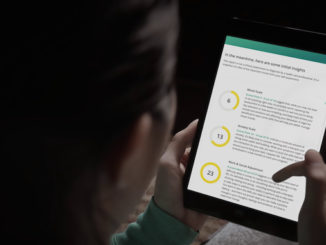The 20th annual imagineNATIVE Film and Media Arts Festival, the world’s largest Indigenous film festival, runs October 22 to 27 in Toronto. The festival shines a light on the incredible work by international and Canadian Indigenous filmmakers and creators with several premieres on the roster. The exciting and diverse programme is filled with contemporary feature films, special presentations, documentaries, short films, visual arts, and audio works (radio, podcasts, sound pieces).
What’s on our list of films to see?
One Day in the Life of Noah Piugattuk: by filmmaker Zacharias Kunuk, Inuktitut, Canada. Opening Night Gala. Kapuivik, north Baffin Island, 1961. Noah Piugattuk’s nomadic Inuit band live and hunt by dogteam, just as his ancestors did when he was born in 1900. When the white man known as Boss arrives in camp, what appears as a chance meeting soon opens up the prospect of momentous change.
The Sun Above Me Never Sets: by filmmaker Lyubov Borisova, Sakha/ Russia. Closing Night Gala. Altan gets a job on a desolate island. Unsure and alone, Altan discovers he has a neighbour – elderly Baibal with a special request. Baibal is ready for death and asks the boy to bury him near his wife’s grave when he dies. Afraid, everyday Altan does everything to make the old man look forward to living another beautiful day.
The Body Remembers When the World Broke Open: directed by Jaija Tailfeathers and Kathleen Hepburn. Two Indigenous women, unknown to each other, and from very different backgrounds, meet by chance. Áila is middle class, university-educated and light-skinned. Rosie is eighteen years old, poor, and has just been assaulted by her boyfriend. When Áila sees Rosie crying barefoot in the street, she makes the decision to help her. What follows is a complicated extended conversation between these two women as they navigate their similarities, differences and shifting power dynamics.
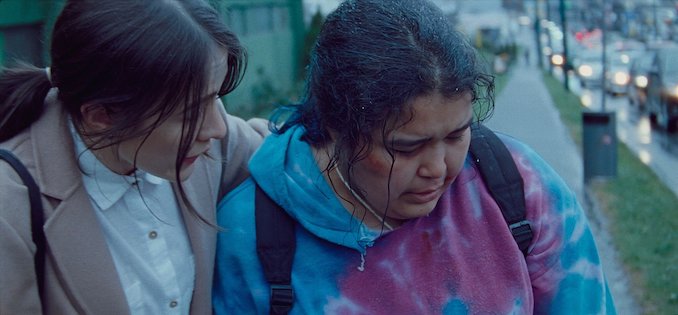
Red Snow: directed by Marie Clements. Gwich’in/Inuktitut/Pashtun, Canada. Dylan, a Gwich’in soldier from the Canadian Arctic, is on a military tour in Afghanistan. During a check-in in a Pashtun village, Dylan is ambushed and captured by Taliban rebels. The capture triggers deep memories connected to the love and death of his Inuit cousin, Asana. As the interrogation begins, Dylan responds in Gwich’in, creating a fury in Taliban leader, Ramin, who thinks he is talking in code. He is held captive in a house owned by Ramin’s cousin Aman, the Translator. When Ramin takes an interest in Aman’s daughter, Khatira, she takes matters into her own hands and uses Dylan to free her family. Now on the run, they must make it to the border before the rebels catch up with them.
Fukry: directed by Blackhorse Lowe, United States. (World Premiere). Ching Yazzie and friends get through life’s unexpected encounters, the ups and downs of falling in and out of love or not at all.
Top End Wedding: directed by Wayne Blair, Tiwi/French/English, Australia (Toronto Premiere). An Indigenous lawyer Lauren lives in Sydney with her non-Indigenous boyfriend, Ned. They are madly in love and when Ned proposes they decide to get married immediately in Lauren’s home town of Darwin. Once they arrive at her parent’s house, they quickly realise that Lauren’s mother Daffy has run off, leaving behind only a cryptic note and a heartbroken husband. Now Lauren and Ned have only ten days to plan a wedding and track down Daffy who they believe to be somewhere in the remote far north of Australia. Will they be able to pull it off? Top End Wedding is a delightful and romantic comedy that uses charm and humour to examine family, cross-cultural relationships and Indigenous identity.
The Incredible 25th Year of Mitzi Bearclaw: directed by Shelley Niro. Canada. Mitzi Bearclaw turns 25 years old, and that means making big decisions for the future. Her dream to design cool hats is put on hold when she decides to move from the city back to her isolated reserve to look after her sick and bitter mother. With the reserve bully constantly at her heels and an old flame in her sights, she is grateful that her cousin is there to help her in the fight to stay sane in such a hard place to keep positive. With spirit guides and laughs along the way, join Mitzi in her battle to get her family back on the right track.
Ruthless Souls: directed by Madison Thomas, Canada (World Premiere). Ruthless Souls follows Jackalope “Jackie” Cambell, a tough as nails Ojibwe artist born and raised in the strange land of Winnipeg, Manitoba. On the first anniversary of her partner’s tragic death, she’s back at work and spends her free time, drinking and smoking up “on the regular”. Trying to cope with the guilt around her partner’s death due to complications from gender reassignment surgery, she finds that her relationships are on the brink.
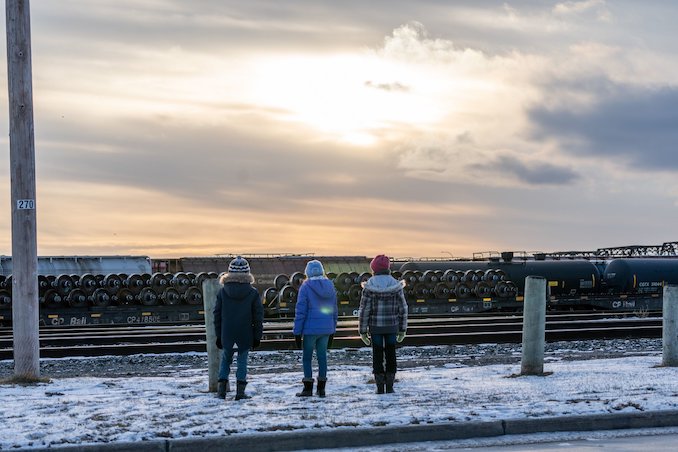
Rustic Oracle: directed by Sonia Boileau, Canada (Toronto Premiere). A spell-binding story from the perspective of 8-year-old Ivy. Her exasperated mother keeps essential information and clues from her because of her age. Frustrated, Ivy tries to unravel the mystery of her older sister’s sudden disappearance from their Mohawk community.
Vai: directed by a sisterhood of Pacific filmmakers. Maori/Tongan/Samoan, New Zealand (Toronto Premiere) explores the themes of womanhood and tradition as the story follows the life of Vai and the various stages in her life from childhood to adulthood. The film is played by eight different actresses and filmed on location in seven Pacific countries.
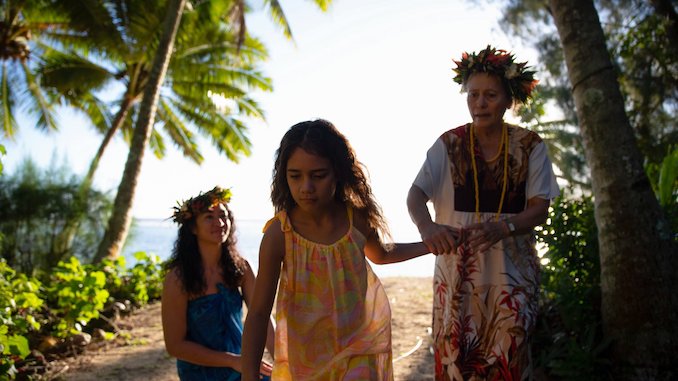
***
DOCUMENTARIES:
Haka Puai te Kainga (Eating Up Easter): directed by Sergio Mata’u Rapu (Canadian Premiere). Struggling with how to balance cultural tradition and modernity, a couple returns to Easter Island with their young son. Amidst the beautiful landscape, they question community on how to preserve their language, culture and land in an ever-growing hot spot.
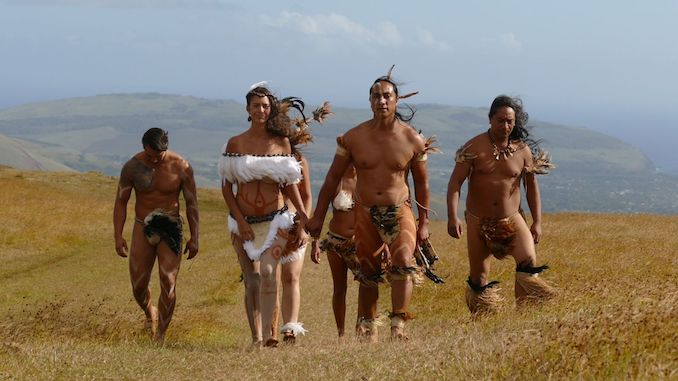
For My Father’s Kingdom: directed by Vea Mafile’o and Jeremiah Tauamiti. Tongan/New Zealand. (Canadian Premiere). Follows Tongan a pensioner and his family as they grapple with his commitment and dedication to his church. When they all return to Tonga for an event they see how deeply connected he is to the community still and question their own identity as well as how his devotion to Christianity has impacted their cultural identity.
Ushui, the Moon and the Sun: directed by Nicolas Rojas Sanchez, Spanish/Damana, Columbia (International Premiere). The Wiwa of the Sierra Nevada ready their cameras, a useful tool to show the world the damage humans are inflicting on nature. A group of women whose mission is to care for and protect nature’s seeds called the Saga to carry their message. Their ancestral wisdom is handed down from generation to generation through song in the Ushui, a sacred house. Torn between two desires, to keep ancestral knowledge sacred and for the community or to open up to modernity for the world for the greater good, the Wiwa reveal the layered importance of collective responsibility and mutual respect.
Sembradoras de vida (Mothers of the Land): directed by Alvaro Sarmiento and Diego Sarmiento, Quechua/Spanish, Peru (Ontario Premiere). High up in the Peruvian Andes Mountains, a group of women follow Indigenous ceremonies and rituals in correlation with the full moon to tend the crops. Challenged by unpredictable weather and planting seasons due to climate change, they attempt to pass on the teachings to a new generation of women.
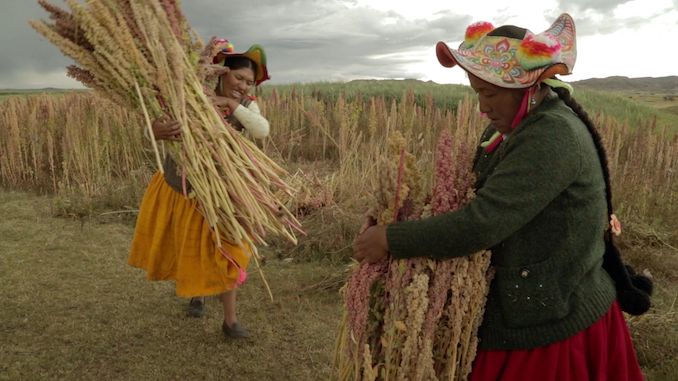
Not Just Numbers: directed by Shirleen Campbell, Australia (World Premiere). Meet the women who run Tangentyere Women’s Family Safety Group. These inspirational grassroots activists work within their communities, raising awareness and taking action against family violence in and around Alice Springs, Australia. They fight for Indigenous women who are survivors of abuse to be respected and seen as more than just statistics on a page.
The Book of the Sea: directed by Aleksei Vakhrushev. A hybrid documentary that introduces the viewer to the Chukotkan way of life following a group of whale hunters who practice their traditional harvesting within the contemporary Russian state. Blended throughout the film is Elders Alexander and Alexei’s story of “of the woman who gave birth to a whale” told through vivid animation, in this ongoing struggle for survival and preservation of culture.
N. Scott Momaday: Words from a Bear: directed by Jeffrey Palmer. Kiowa/United States. Up until the late sixties, an Indigenous writer had yet to win a major literary award within the US. That all changed when Kiowa author N. Scott Momaday received the 1969 Pulitzer Prize for Fiction for his debut novel House Made of Dawn. Words from a Bear reveals the inspiring beauty of Momaday’s work while also guiding audiences through the grave historical struggles that Native American communities have faced.
Wik vs Queensland: directed by Dean Gibson, Australia (International Premiere). As Australia goes through a period of political upheaval, the Aboriginal people of Wik are fighting for their right to their native title through the courts. Whether or not the law will fall in their favour or even passed hangs in the federal election that co-indices with their historic court battle.
***
iNDigital Space at the TIFF Bell Lightbox (main floor) is a free large-scale presentation of Indigenous-made works, VR, AR, video games and special talks. This interactive space will host over 15 contemporary works. Award winning game desinger, Elizabeth LaPensee, will present her newest project When Rivers Were Trails, an adventure about the Anishnaabeg in the 1890’s. Opens October 23 to October 27.
Full list of films, events and schedule can be found at www.imagineNATIVE.org




